Hard times on Kabul's Chicken Street
- Published
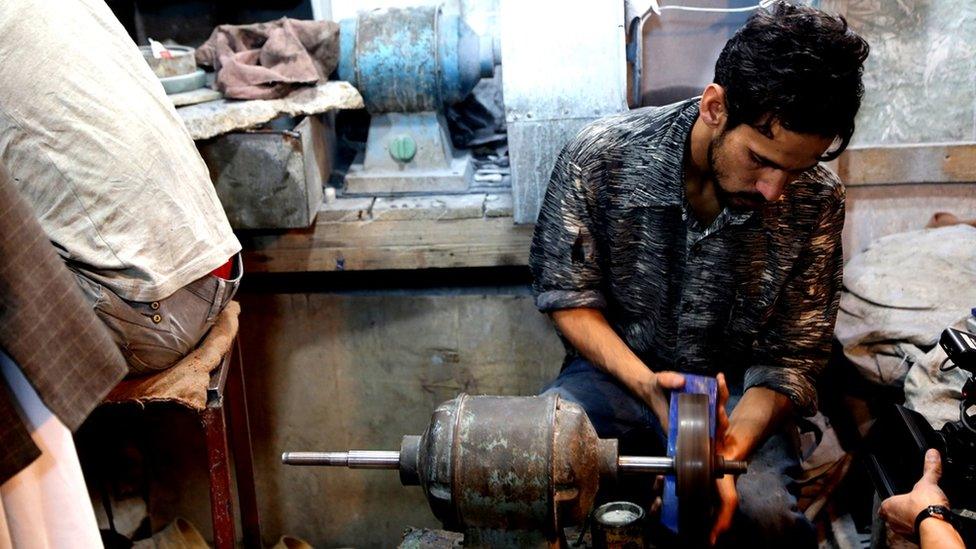
Chicken Street is Kabul's most famous shopping area where people went to buy Afghan souvenirs, but the departure of foreign troops and workers has hit business hard. This lapis lazuli workshop used to have 10 workers, but now employs only four. Text by BBC Persian's Kawoon Khamoosh.
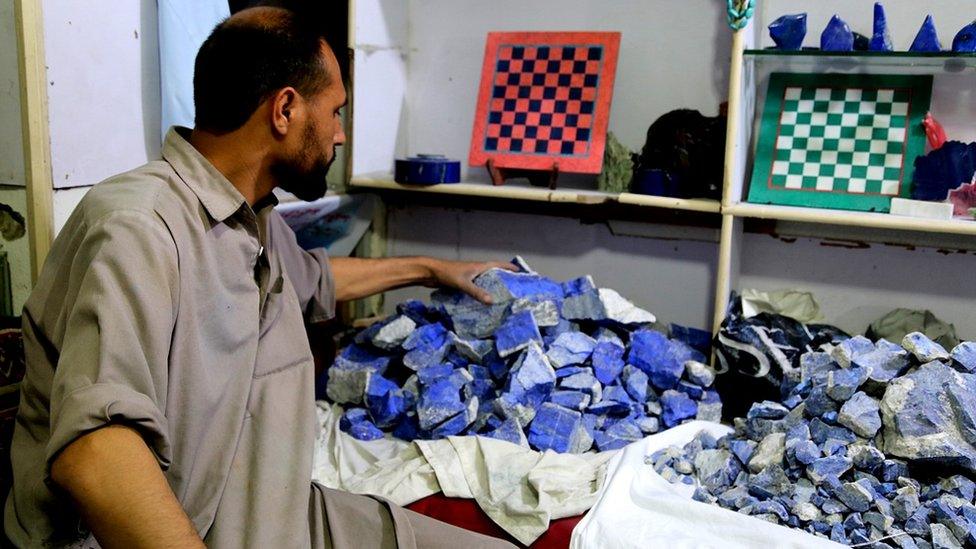
This trader says the price of lapis lazuli, a semi precious stone mined in Afghanistan's northern Badakhshan province, has dropped dramatically over the last year, from $650 to just $150 per kilo.
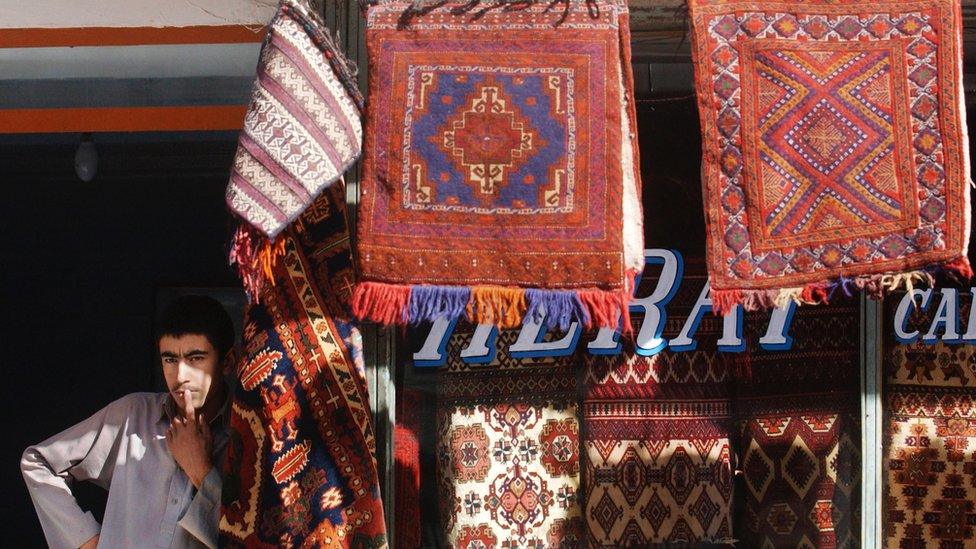
Chicken Street - seen here in September 2002, a year after the fall of the Taliban. Traders say the years that followed were the best the street has seen as foreign troops and development workers poured in.
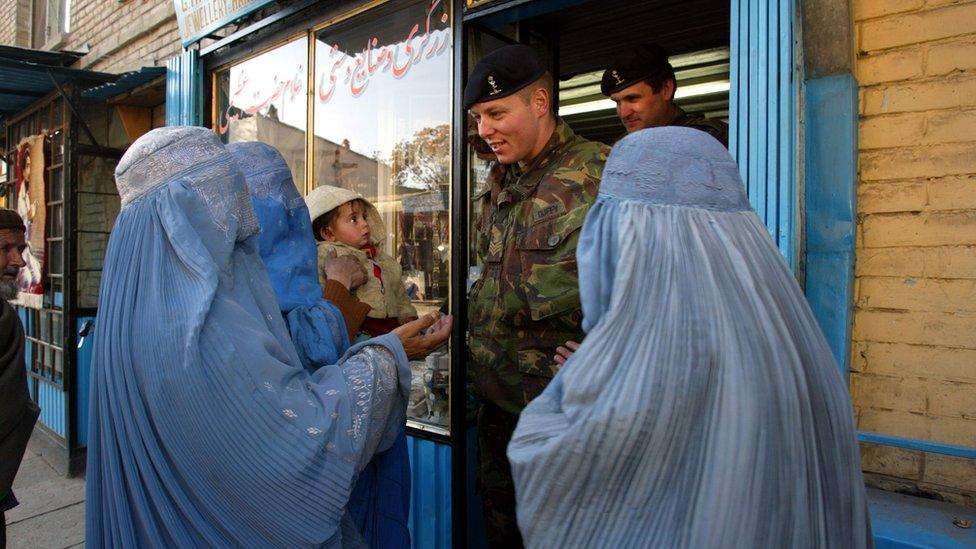
British soldiers encounter a group of Afghan women begging in Chicken Street in 2002. The street is said to get its name from a chicken shop located in the area during King Zahir Shah's reign.
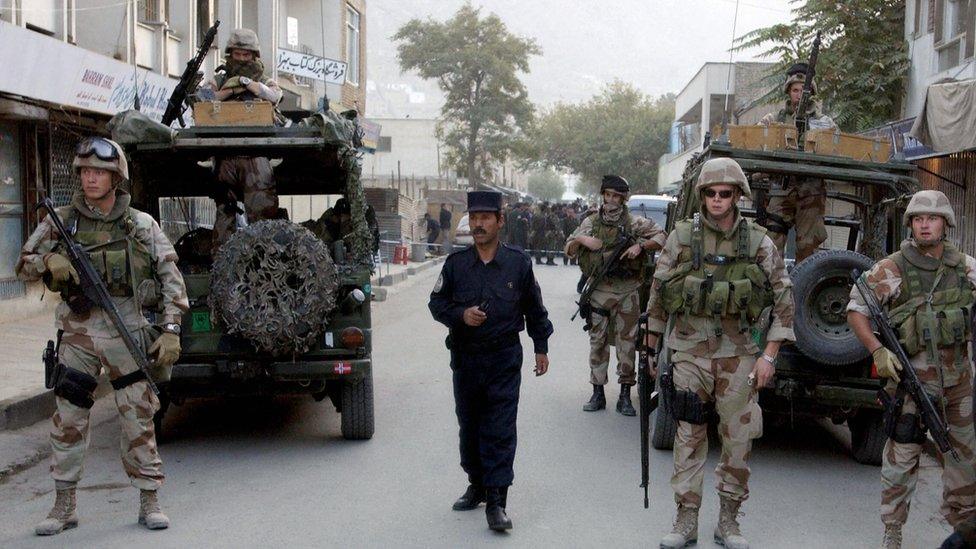
Nato troops secure an area on Chicken Street after a suicide attack targeting soldiers outside a carpet shop in October 2004. An Afghan girl and an American woman were killed.
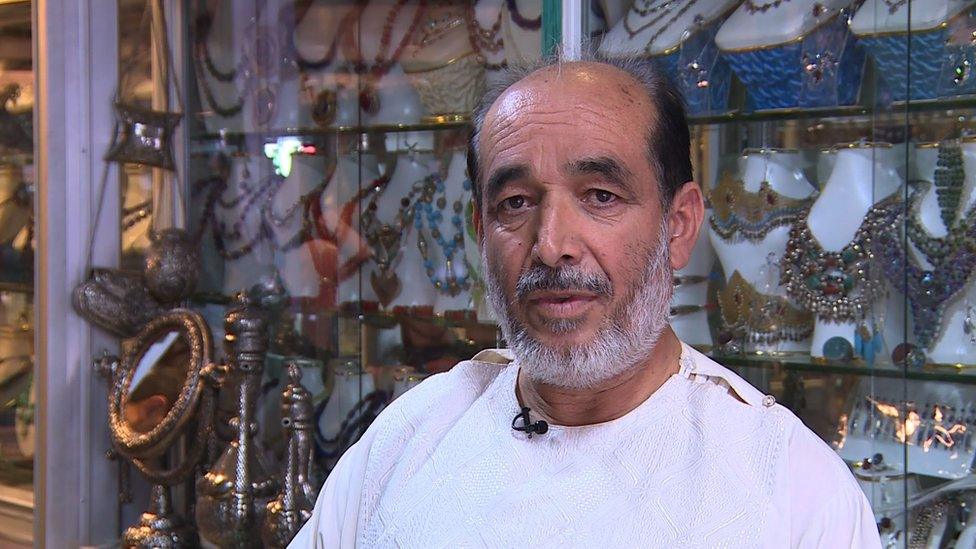
Akbar Samandary has been selling jewellery and antiques on Chicken Street for years. He says trade was very good after the Taliban fell. "When foreigners came to Kabul the street had its best time. But it lasted only until 2007 when security became bad and we had explosions and suicide attacks.
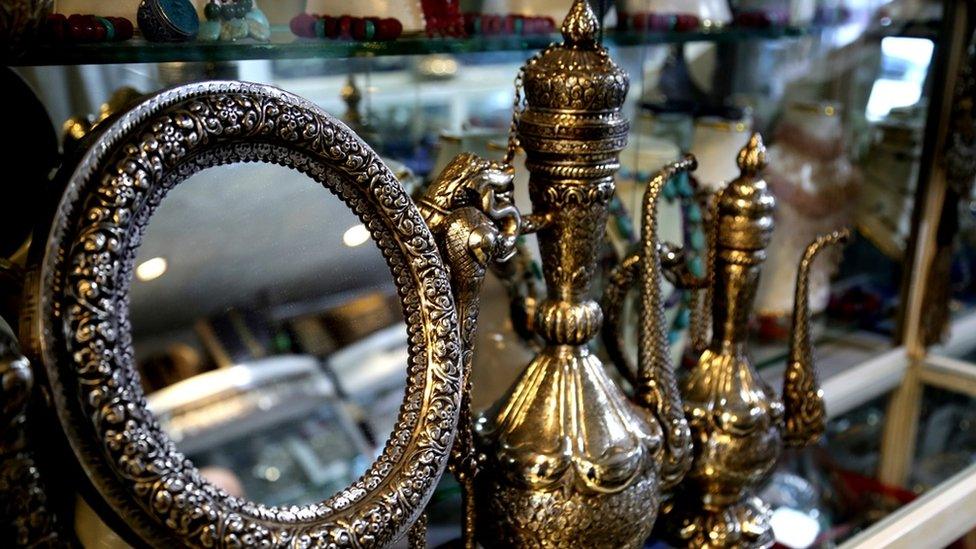
Antiques for sale. Akbar Samandary says there are now four security gates around Chicken Street. "People are banned from bringing cars in, but they don't come and walk here."
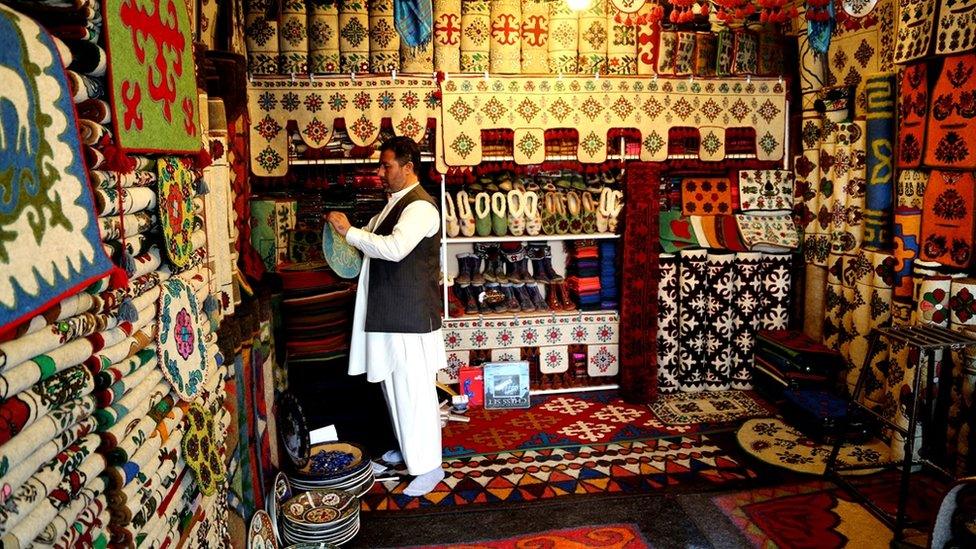
The market in Afghanistan's famous rugs and carpets is also in crisis. This shop used to sell handmade rugs and felt carpets at premium prices, but foreign custom has dwindled.
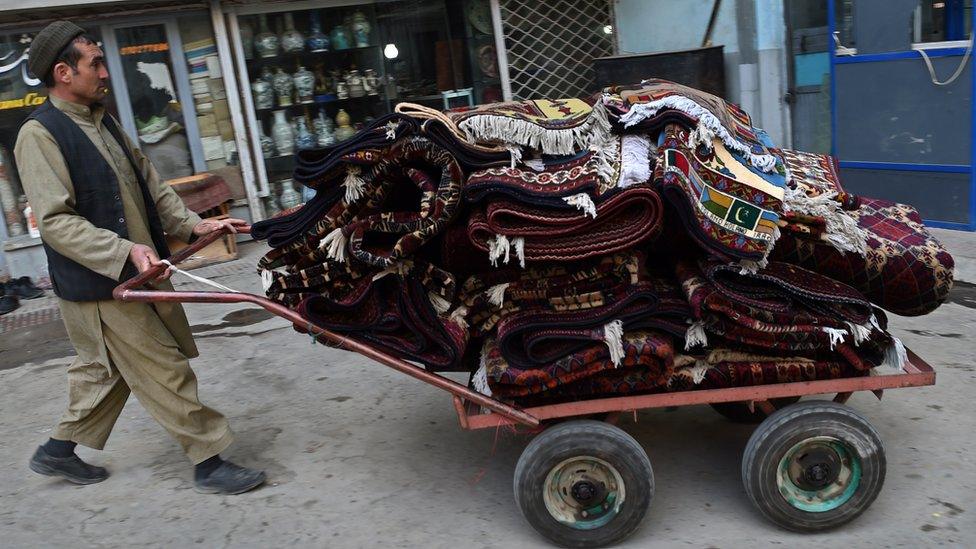
The rug trade has suffered alongside other businesses on Chicken Street, with restaurants and sports clubs closing in recent years.
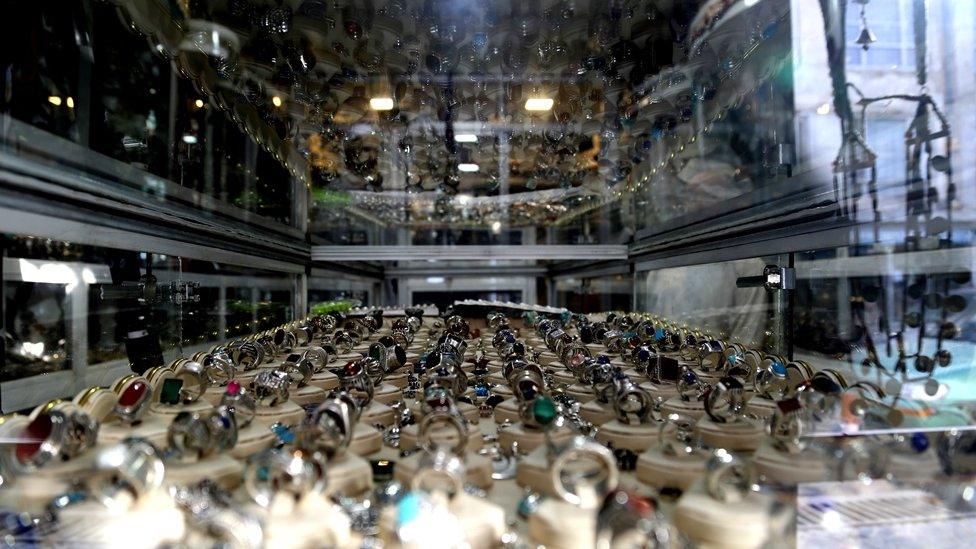
As traditional Afghan products struggle, cheaper Chinese goods have appeared in jewellery shops on Chicken Street.
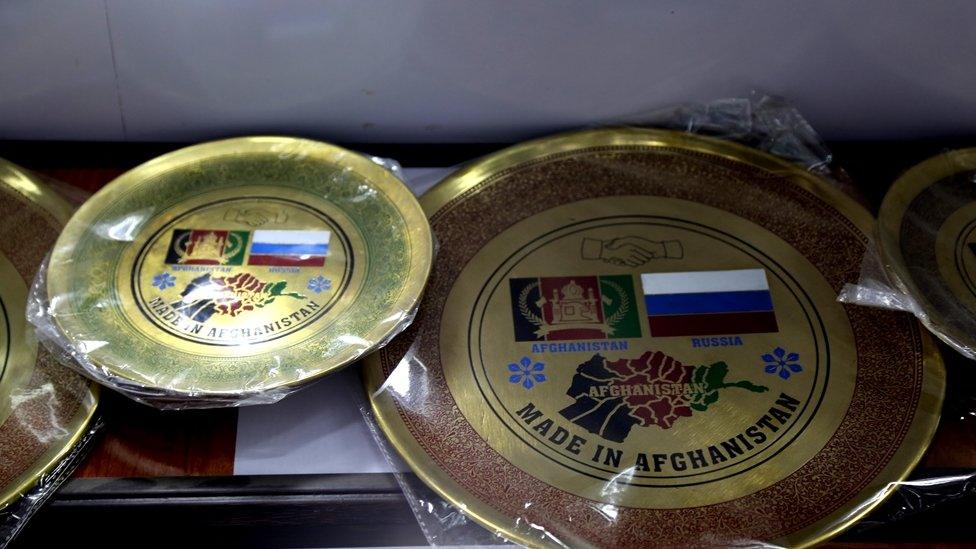
A reminder of recent history: Bronze souvenir plates, celebrating friendship between Russia and Afghanistan.
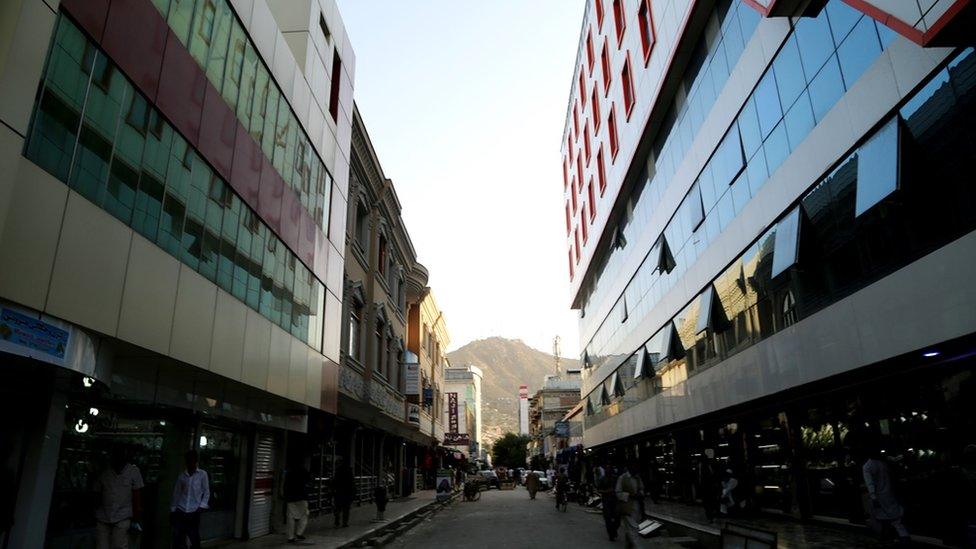
Government buildings have gone up in the neighbourhood and are changing the face of the old thoroughfare. Newly-built markets and malls have struggled to rent out their shops, despite offering generous discounts. Today, the view along Chicken Street opens up on TV mountain, so-called because of the TV masts on top.
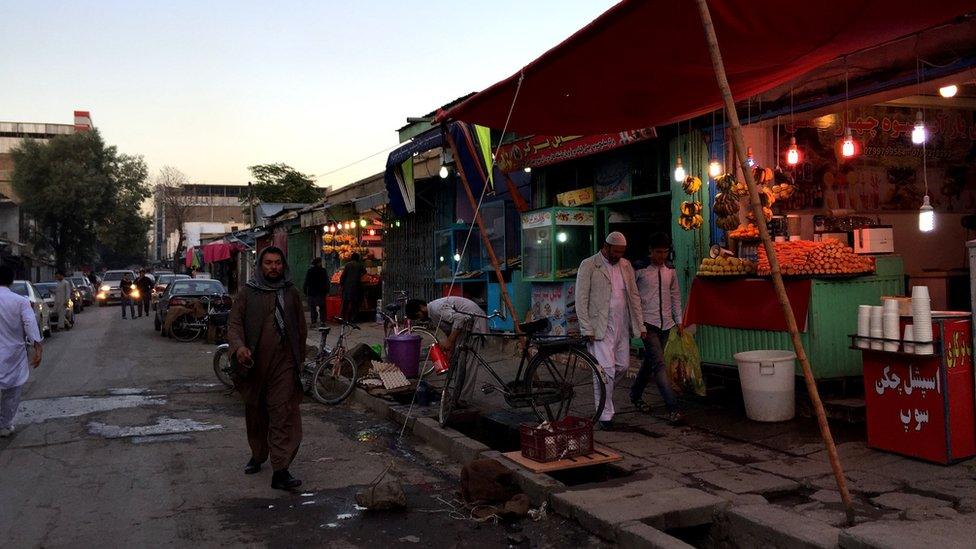
The decline in the souvenir trade has opened the door for more downmarket juice and burger stalls to replace failing antique and gemstone shops.